Collagen supplements are one of the most hyped ingredients in the health and beauty industry, but are they really worth the hype? Consider this a registered dietitian’s complete guide to collagen supplements and its benefits.
One of the most common questions I get is “what are your thoughts on collagen supplements”, and rightfully so! Collagen is one of those trendy ingredients showing up everywhere. You can find collagen creamers, collagen protein bars, and collagen waters without too much trouble. Take a walk down the supplement aisle and you’ll find collagen supplements in the form of powders, capsules and gummies.
But what exactly is collagen and what are the benefits? Consider this your ultimate guide to collagen supplements. It’s a simple but science-based look into collagen and its benefits.
I also wrote a book all about collagen with Sterling Publishing, it’s benefits and 30 different recipes called Collagen: Self-Care Secrets to Eat, Drink and Glow.
WHAT IS COLLAGEN?
Collagen is the most abundant protein in the body, making up about a third of all protein. Think of it as the “glue” that holds your body together. It’s one of the main structural components of your skin and connective tissues, like tendons and cartilage. It also plays an important role in our joints, bones, hair, nails, and even the gut (1). Needless to say, it’s a pretty important part of the body!
Since collagen is a protein, it is made up of amino acids. (For a refresher on protein, check out the Protein 101: A Simple Guide to Understanding Protein post). What makes collagen unique is that the majority of the total amino acid content comes from glycine, proline, and hydroxyproline.
TYPES OF COLLAGEN
There are 28 different types of collagen found in different parts of the body. The different amino acid makeup of each type of collagen depends on the type of structure it’s a part of (ex. joint cartilage vs. gut lining). However, there are five main types of collagen, with 80-90% of all collagen in the body consisting of Type I, Type II and Type III.
Type I – this is the most abundant type of collagen and found in almost every tissue of your body. This includes tendons, skin, bones, cartilage and connective tissues.
Type II – found mostly in cartilage. This includes joints between bones, ends of ribs, ears & nose, etc.
Type III – often found alongside Type I collagen, as well as in muscles, organs, arteries and some connective tissues in the liver, spleen and more.
COLLAGEN SYNTHESIS
Our bodies naturally produce (aka synthesize) collagen. Just like how our bodies pull from the pool of amino acids to make new muscles, it does the same to make collagen. The body uses the necessary amino acids along with the help of certain vitamins and minerals like vitamin C, zinc, and copper to make collagen protein when and where it’s needed.
That being said, as we age, collagen in the body begins to deteriorate and production slows. This process starts in the late 20s early 30s and is most noticeable in our skin as fine lines and wrinkles. As we produce less collagen, other noticeable issues include brittle hair and nails, digestion issues, more pronounced cellulite and joint pain.
WHAT CAUSES LOSS OF COLLAGEN?
Age is one of the biggest players in collagen breakdown. Unfortunately, we can’t turn back time or reverse the process but we can make diet and lifestyle changes that lessen the impact. These include:
-
- minimizing a diet high in refined sugars
- reducing stress
- preventing nutrient deficiencies such as protein and other vitamins and minerals
- not smoking
- be smart sun exposure
- reducing exposure to air pollution
DIFFERENT TYPES OF COLLAGEN SUPPLEMENTS
Collagen supplements come from connective tissue of cows, fish and sometimes chicken. Most supplements you’ll find are made up of bovine collagen which are sourced from cows. However, marine collagen, which is sourced from fish, is growing in popularity due to it being absorbed up to 1.5 times more efficiently.
Hydrolyzed Collagen (aka collagen peptides)
To make this form of collagen, collagen proteins are broken down by an enzymatic process called hydrolysis, into a smaller, more easily absorbable form called peptides. This is the same thing as collagen peptides.
This is a tasteless, odorless powdered form of collagen that can be added into either hot or cold liquids. It essentially just dissolves into whatever it is mixed with, making it extremely easy to take.
Capsules
These are convenient in the sense that you don’t have to add it to a liquid or food in order to take it. You just have to remember to take it! If you already have a supplement regimen in place, adding a collagen supplement in capsule form may be an easy addition.
Gummies
I typically do not recommend gummy supplements. Most of the time they are sugar-based and have added ingredients and fillers.
Keep in mind quality matters when it comes to supplements, especially collagen supplements. I recommend purchasing high-quality collagen made from grass-fed, pasture-raised cows or wild caught fish. Also, make sure the products have been third-party tested for purity.
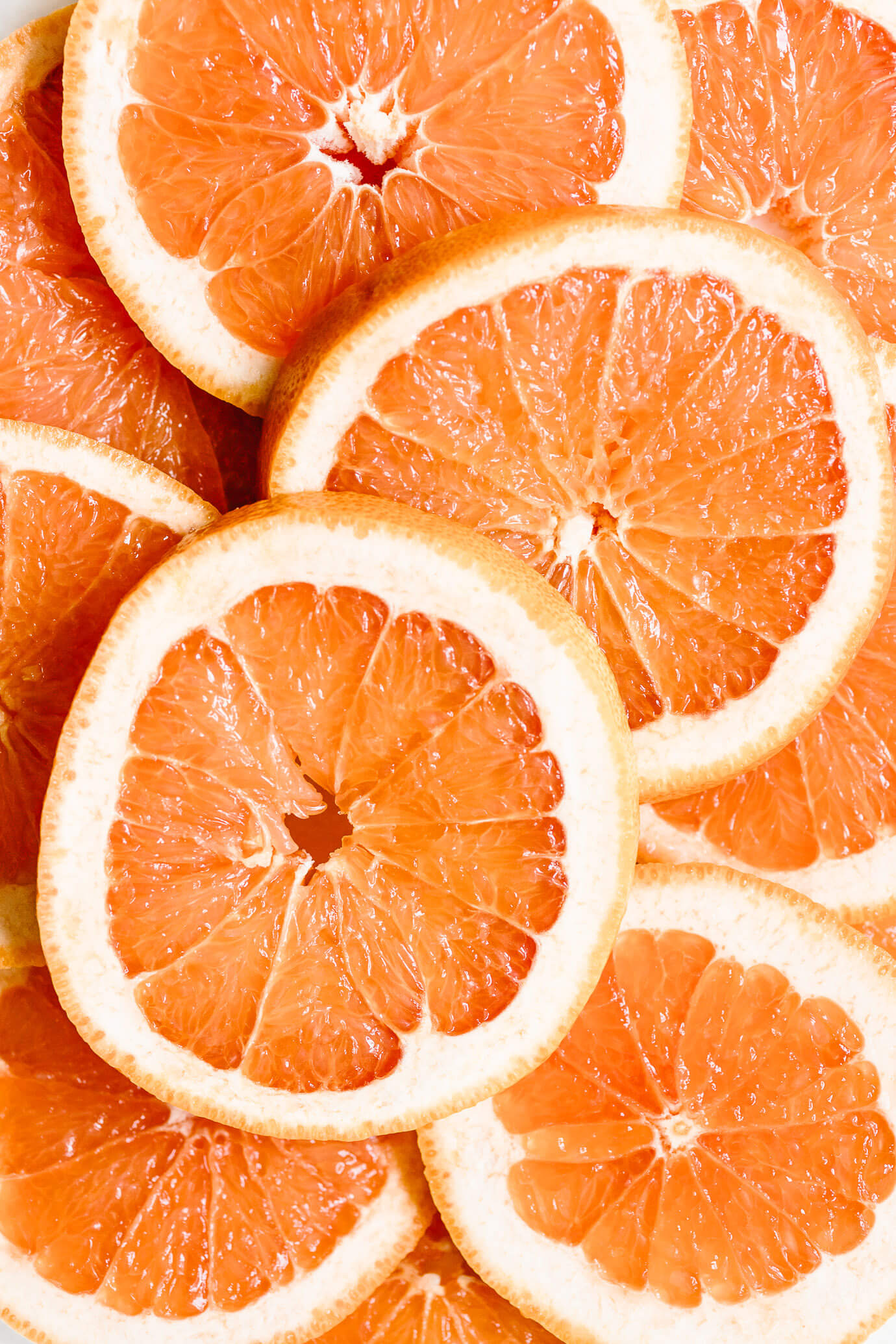
FOOD SOURCES OF COLLAGEN
Whole food sources of collagen come from meat, fish, and eggs. When you consume these foods you are getting collagen. However, since the best sources of collagen are found in skin, tendons and cartilage, it’s likely you aren’t getting a lot from lean animal protein. Another whole food source of collagen is bone broth, which is made by simmering the collagen-rich parts of the animal and bones (hence the name “bone” broth). Bone broth can be used in cooking or sipping as a warm, savory beverage.
Other nutrients play an important role in collagen formation and protect the body’s collagen from damage and deterioration. Vitamin A, Vitamin C, iron, zinc and copper are all necessary for proper collagen production. Thankfully a whole food, plant-based diet can easily provide these nutrients. Good sources of these nutrients include carrots, sweet potatoes, kale (vitamin A), strawberries, bell peppers, broccoli, kiwi (vitamin C), pumpkin seeds, cocoa powder, cashews (zinc), cashew, sunflower seeds, chickpeas (copper), spinach, lentils and black beans (iron.
Omega-3 fatty acids protect the body’s collagen stores from damage and work to help reduce free radicals and inflammation. The best sources of omega-3s include hemp seeds, chia seeds, walnuts, flaxseeds and fatty fish like salmon.
WHAT ARE THE BENEFITS OF COLLAGEN?
There are numerous claims supporting the benefits of collagen. These range from decreasing wrinkles and improving joint health, to aiding in weight loss and healing the gut. But what does science say?
The research on collagen is limited since it’s a fairly new topic of study. Most of the research has looked at collagen in regards to skin, joint and bone health. Other studies look at the main amino acids (glycine and proline) in collagen and their benefits or a collagen as a protein source. But the research looks promising!
Skin
Various forms and dosages of collagen have been studied showing improvements in skin elasticity, keeping skin looking younger and preventing signs of aging by keeping skin firm and hydrated (2, 3, 4). Research also shows that this can increase the smoothness and help reduce the appearance of cellulite (5).
Hair and Nails
As collagen production slows, hair and nails can become brittle and weak. Collagen can help hydrate your hair and nails, helping them grow faster and thicker (6).
Bone and Joint Health
Collagen has been shown to help reduce inflammation (7). This can be extremely beneficial for those with Rheumatoid Arthritis, Osteoporosis or other inflammatory disorders (8, 9, 10). Collagen also helps in preventing the breakdown of joints, especially in individuals with osteoarthritis. Another study found that athletes given the collagen supplement had less joint pain than those that did not receive the supplement (11).
Gut Lining
Numerous studies have shown that those with inflammatory bowel diseases have less collagen in the lining of their intestines (12, 13, 14). Collagen is 30% glycine. Glycine is shown to help repair leaky-gut, a condition where the lining of the small intestine becomes damaged, causing undigested food particles, waste products and bacteria to “leak” through the intestines into the bloodstream (15). Collagen can help restore the lining of the stomach and intestines and improves nutrient absorption (16).
Muscle gain and satiety
Protein is an important part of the diet and out of all the macronutrients provides the most satiety – meaning it keeps you full longer. Adding collagen can also help with muscle gain when combined with strength training by providing necessary amino acids for muscle growth and recovery following exercise (14).

COMMONLY ASKED QUESTIONS:
IS COLLAGEN VEGAN?
There are no sources of collagen that are vegan. Collagen is only made in humans and animals. You may have seen “vegan collagen” supplements but these only contain ‘collagen-boosting’ nutrients like vitamin C, zinc, and amino acids derived from plant sources. They do not contain actual collagen derived from animal connective tissues.
ARE THERE PLANT-BASED SOURCES OF COLLAGEN?
No. But there are foods that boost our natural collagen production. Even though your body can produce the necessary amino acids for collagen production, it’s important to make sure you are getting enough proline and glycine to ensure your body has enough to support this process. Soy, beans, spinach, cabbage, cauliflower, avocados, asparagus, and sunflower seeds.
This is a fantastic resource on plant-based foods that support collagen production.
CAN COLLAGEN REPLACE MY PROTEIN POWDER?
Collagen can be a good replacement for your traditional protein powder if you are eating a well-balanced diet and getting other sources of protein. Collagen is an incomplete protein, meaning it doesn’t contain all of the 9 essential amino acids in adequate amounts. If you’re adding protein powder as a main protein source or to increase muscle mass, you may be better off with a different source of protein.
HOW MUCH COLLAGEN SHOULD I TAKE?
The recommended serving size is about 10-20g of collagen peptides (about 1-2 scoops). This ensures a good amount of protein and collagen. Remember more isn’t always better. You want a variety of protein in your diet to get the full amount of essential amino acids your body needs.
WHAT IS THE DIFFERENCE BETWEEN COLLAGEN AND GELATIN?
Collagen and gelatin are not the same. Gelatin is made from collagen that has gone through a heating process that alters the state of the amino acids. This means that collagen can be dissolved in both cold and warm liquid, whereas gelatin “gels” in cold liquid but dissolves in hot liquid. Think of Jell-o, puddings or gummies which are made from gelatin.
Nutritionally, collagen and gelatin have same amino acid profile and the same benefits.
CAN I TAKE COLLAGEN WHILE PREGNANT OR NURSING?
Yes, collagen is just another form of protein and is safe to take while pregnant or nursing. In fact, glycine needs greatly increase during pregnancy making collagen an excellent choice for pregnant women.
Additionally, most women aren’t meeting their protein needs during pregnancy and postpartum. Pregnant women need protein for blood sugar management, minimizing nausea, and growing baby’s cells and the placenta. Collagen is in an optimal form for all of this. It also supports joints, pelvic floor tissue, skin elasticity, and postpartum hair and skin.
Make sure you read labels and make sure your supplement doesn’t contain any other ingredients or fillers. As always, it is best to talk with your doctor about supplements before taking any at this special time in your life.
HOW TO CHOOSE A COLLAGEN SUPPLEMENT?
Not all collagen is created equal. Since collagen is an animal product, choosing collagen from a reputable source is important. Look for collagen that comes from grass-fed, pasture-raised animals or wild-caught fish. The collagen should not have any additional fillers or additives.
Overall, when choosing a collagen supplement opt for a brand that is transparent about their processes and sourcing. Also, look for collagen that is certified by a third-party quality-testing company, like NSF International or United States Pharmacopeia (USP).
I like these brands:
-
- Needed Collagen Peptides (code NOURISHEDBYNUTRITION)
- Vital Proteins
- Ancient Nutrition
DO YOU USE COLLAGEN?
Yes, I try to incorporate collagen as a daily ritual. It’s easy to use and I like that it dissolves into basically anything. I also wrote a book all about collagen with Sterling Publishing, it’s benefits and 30 different recipes called Collagen: Self-Care Secrets to Eat, Drink and Glow.
Keep in mind. collagen isn’t my only protein source and I also use a plant-based protein powder. I love the results I’ve seen with my hair and skin and it’s easier on my digestion than some of the other protein powders I’ve tried.
It’s also nice to take individual packets of collagen me on the go, especially on trips. I keep one in my purse just in case I’m in a pinch or feel like I need a source of protein to round out a snack or meal when the options are limited.
HOW TO INCORPORATE COLLAGEN INTO MY DIET?
Adding collagen into your diet can be pretty easy since it dissolves into pretty much anything. Try adding it to a liquid such as a smoothie, juice, water, tea or coffee, or boosting the protein content of your favorite foods: oatmeal, baked goods, raw treats, snack balls, pancakes, salad dressings and sauces.
For more easy recipe to get you started to try these Cashew Coconut Collagen Bites or Date Sweetened Collagen Hot Chocolate. I have 30 more recipes is my book Collagen: Self-Care Secrets to Eat, Drink and Glow.
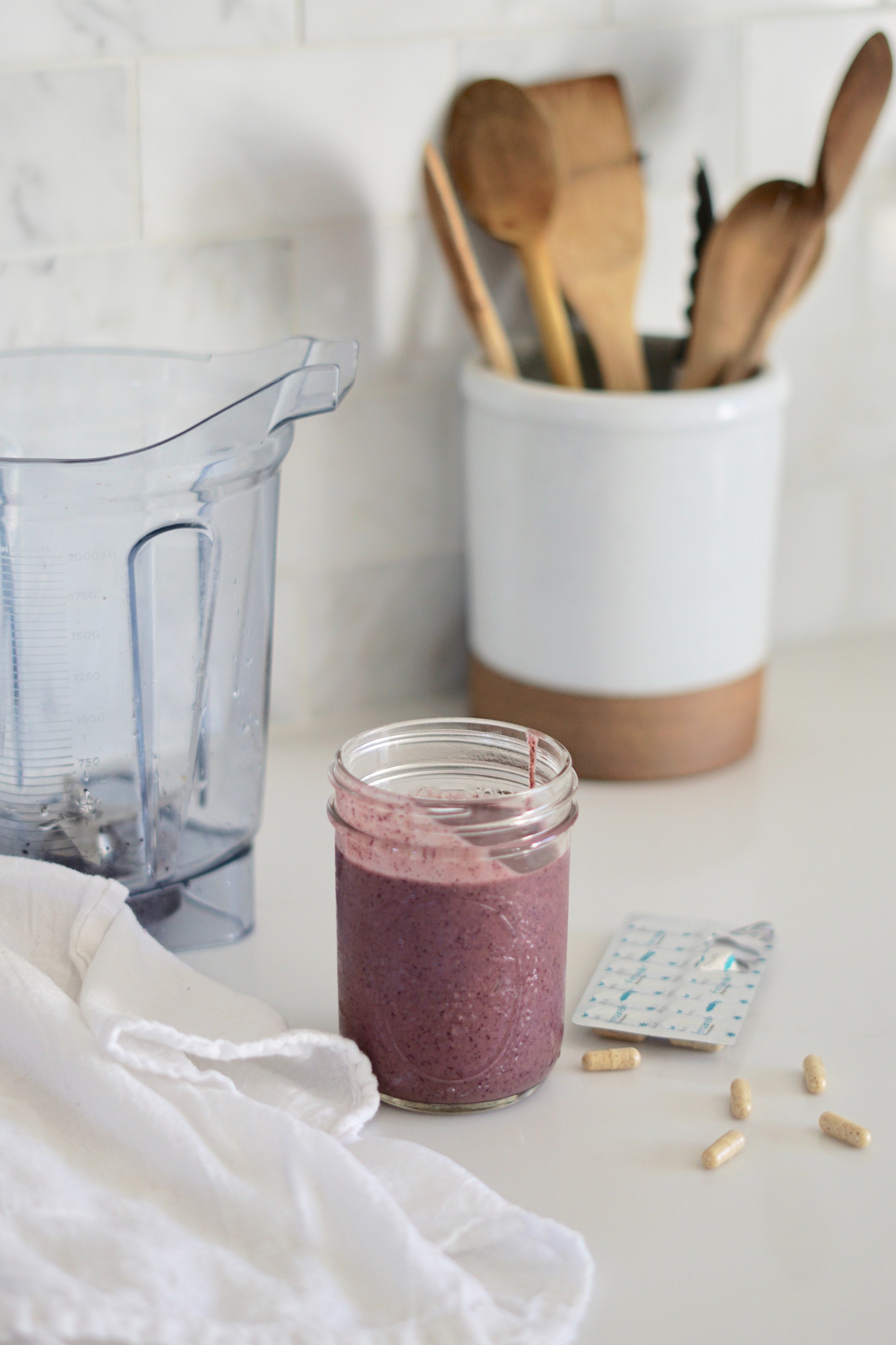
THE BOTTOM LINE: SHOULD YOU TAKE A COLLAGEN SUPPLEMENT?
The current research on the effects of collagen is very promising, especially for skin, joint and gut health.
I recommend considering your diet as a whole. Whole foods have a variety of nutrients that support collagen production and protect it from breaking down due to environmental damage. Your body has the ability to produce the amino acids to make most types of collagen. A well-balanced diet with adequate protein can provide you with enough of the necessary essential amino acids for your body to support collagen.
Remember, consuming collagen doesn’t mean the body uses it directly to make more collagen. The collagen is broken down into amino acids during the digestion process just like other proteins. The body is smart and prioritizes which proteins to make from the pool of amino acids based on where proteins are needed in your body.
That being said, if you are looking for an easy way to boost your protein intake, an excellent source of glycine or not eating animal products or much protein, taking a collagen supplement is a great option!
LET’S CONNECT!
Leave a comment below and make sure to follow me on Facebook, and Instagram where I share more nutrition and wellness topics.

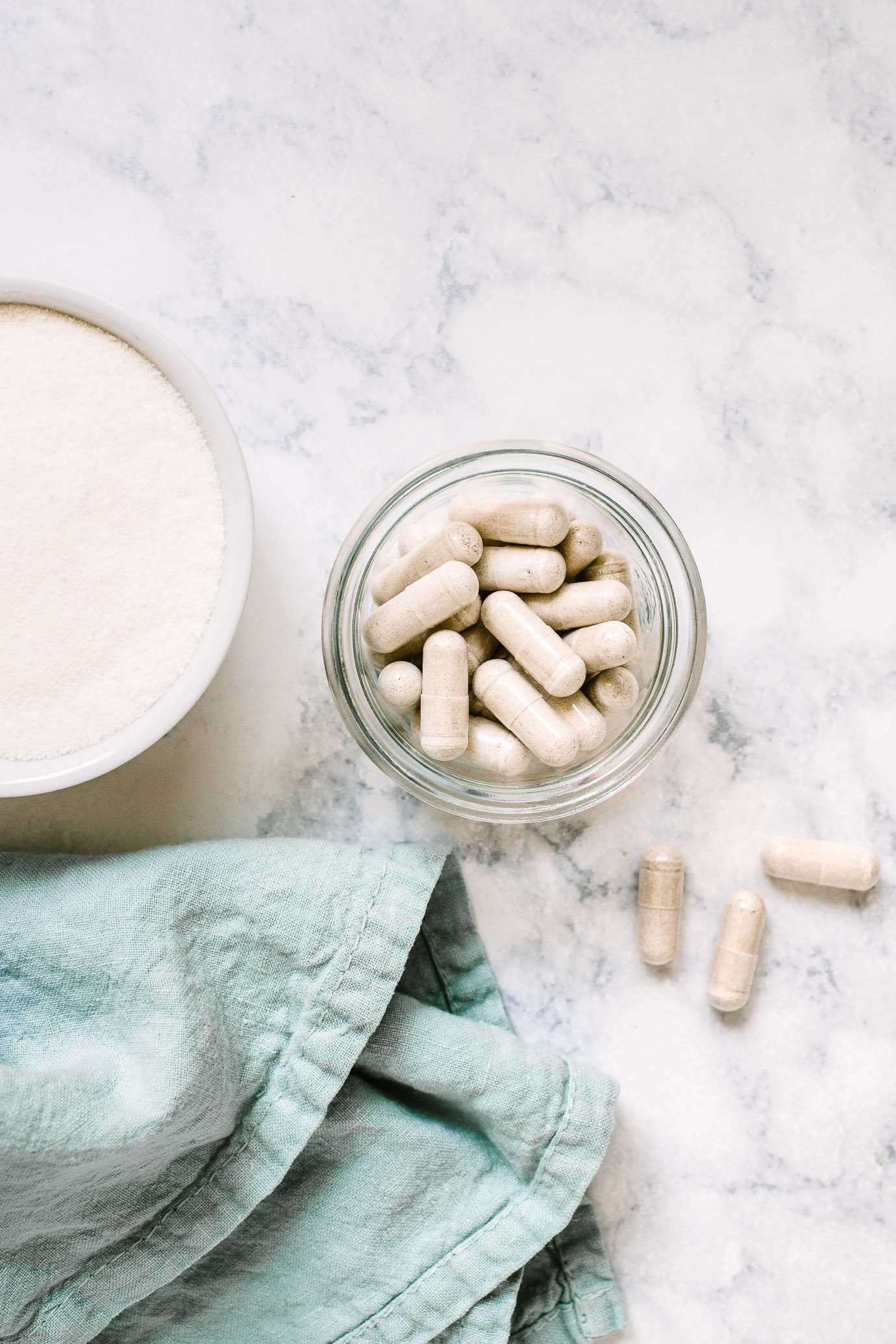

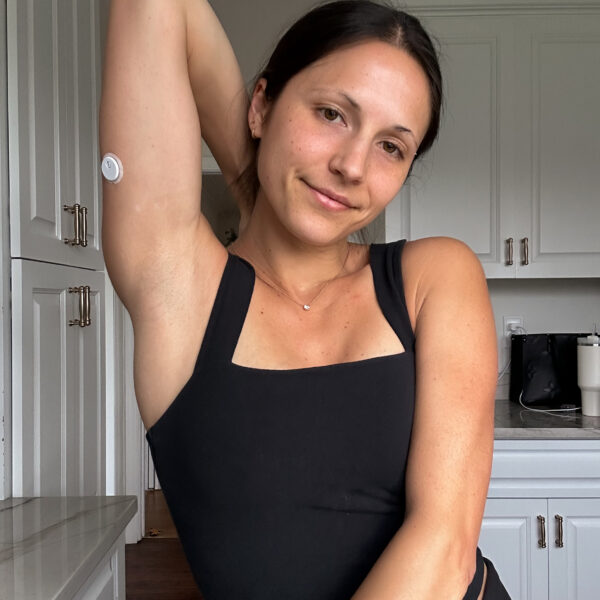
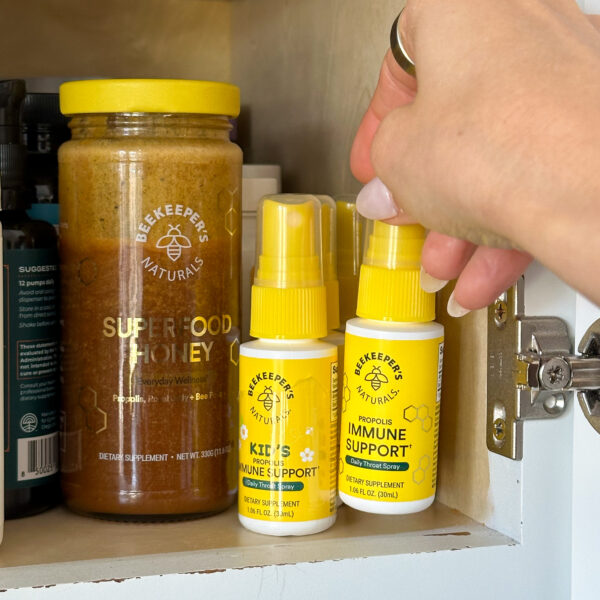
[…] but it’s important to know that collagen itself is an incomplete protein because it lacks all 9 essential amino acids. This means it does not supply everything the body needs to make new protein or […]
[…] health and anti-aging routine. This protein is your body’s secret weapon for youthful vitality1. It’s the most abundant protein, crucial for keeping your body strong and […]
Hi Jessica, First off I loved your book. Would you recommend having collagen peptides at a younger age (16), if so which collagen peptides would you take? I’m a bit confused…
Thank you,
Marie
[…] Collagen supplements come in various forms, including powders, capsules, and liquids. Each type has its own advantages, and the choice often depends on personal preference and lifestyle. For tendon health, hydrolyzed collagen (also known as collagen peptides) is often recommended due to its high absorption rate and ease of digestion [1]. […]
I was looking for such a complete and comprehensive article about collagen powder for a long time. It was very complete and comprehensive. Please visit our website articles about collagen.
https://romaran.ir/product/collagen-powder/
Hi Jessica, I appreciate you on writing such a great content. How long have you been writing such great content? Keep it up. Thanks!
An in-depth piece of information. I LOVE IT!!!
[…] What is Collagen? Your Ultimate Guide to Collagen Supplements | Nourished by Nutrition […]
[…] What is collagen? Your ultimate guide to collagen supplements (Nourished by Nutrition) […]
Could you tell me what brand of collagen and protein power you use. I have tried many products and no improvement. I really need your help. Lastly, what a good book to purchase to help me eat right.
Bridgette
Hi, I have just ordered type 1, 2 and 3 collagen and am wondering whether I can take them altogether or if I have to take them separately? The more information the better 😊
Thank you for this article. I take Biocell Collagen about 4 months, and I am really surprised about my condition. I was skeptical at first, but after a lot of research on the internet, I’ve found your blog. I also speak with my friend (he is a doctor) and he recommended to order the collagen on https://www.vitaminexpress.org/uk/collagen-supplements. It’s patented, without additives and hypoallergenic. I take 2 capsules a day before a meal with a water :)
Hello
I Just discovered your website and I’ve spent quite some time reading many of your articles about proteins, collagen , recipes and I must thank you as you take time to really explain everything. As I am in a moment of my life where I really want to know more about a good way of eating and a good way of giving my body all the nutriments it needs, finding these articles was really good timing. Thank you from Morocco
I forgot to ask a question, just to know, if i decide to take some peptides collagen and some plant based protein powder , how should i take them ? Should I take some one day and the other an other day ? or a small amount of both on the same day, everyday? ? (based on the fact that i have good balanced meals)
Thank you,
Alia B
Thanks for very nice blog!
Thank you! I appreciate you taking the time to comment!
That’s so amazing Jessica. I’m pretty excited about your book. Could you give me know so I can check it out once it gets published? Because I love love love collagen and your recipes must be delish.
Hey, Jessica
You’ve done such a fantastic job in putting together this guide on collagen supplements. I’m in my late twenties and confused about the type of collagen I really need. I’ll definitely take reference from this guide. :)
XO, Mariyam
Thank you so much, Mariyam!! This makes me so happy to hear. Spring 2020 my book on collagen will hit the shelves. I know that’s a little ways away but it’s something to look forward to! It’s packed with info and 45 delicious collagen recipes. xx, Jess
[…] To get the full rundown of collagen and its benefits, check out the Ultimate Guide to Collagen. […]
[…] collagen is not plant-based or a complete protein, it does have numerous health benefits. It’s also an easy way to increase your protein intake without compromising taste and texture […]
[…] Add in a vegan protein powder of choice or collagen peptides. you’ll have to experiment with the amount of liquid since all protein powders are different. My favorite addition is collagen peptides because they just dissolve into the liquid. But just know that this is not a vegan option. Make sure to check out this post all about collagen peptides. […]
[…] I’m a huge fan of collagen peptides. I use them daily in my morning matcha and regularly add a scoop to oatmeal, lattes or to baked goods when I want an extra boost of protein. Collagen peptides can help support a healthy gut, strong hair and nails, and help reduce the appearance of saggy skin and wrinkles. Want to know more? You can read all about this protein option in my ultimate guide to collagen. […]